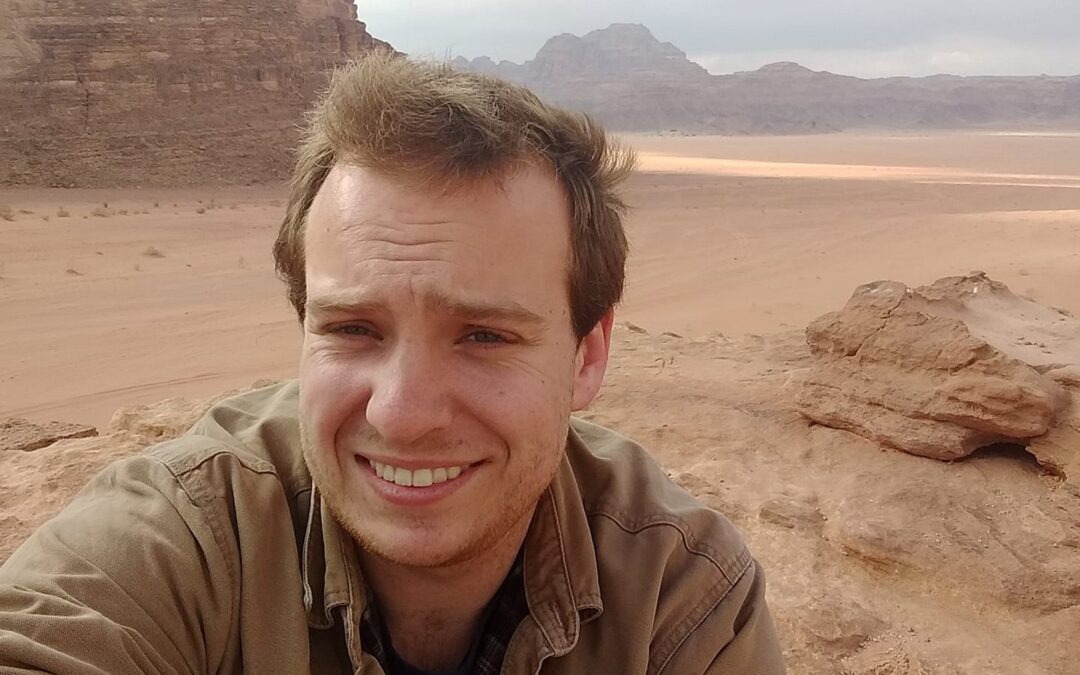Author: Jordan Fontaine
Nick Shafer is a recent graduate of UC Berkeley and the recipient of a Gardner Fellowship, Boren Award, and Fulbright Scholarship, among others. Nick transferred from Foothill Community College. Through the David L. Boren Scholarship, Nick studied in Amman, Jordan while also a Fellow at the Center for Arabic Studies Abroad in Jordan.
What is Boren and how does it work?
Boren is a program that gives students the chance to learn critical languages while living, and often researching, abroad. Generally, undergraduate students focus solely on language skills while graduate students may have an added research component. Successful applicants receive funding of up to $25,000 (depending on if they are an Undergraduate Scholar or Graduate Fellow) for programs of varying duration, though most require at least six months overseas. What’s the catch? Students must commit to working for the federal government for one year post-graduation. Participants actually receive competitive hiring preference for certain federal positions at organizations like the State Department, Department of Defense, and the Intelligence Community.
Why Boren?
For someone like Nick who has interests in public policy and education, and has plans to pursue career options in diplomacy and conflict resolution, this work requirement only sweetened the deal. We can understand why: you get funding to learn a language, conduct research, and live abroad—then, on top of all that, when you’ve finished your education you have access to a wide range of government jobs. From the Armed Services to USAID, there are thousands of positions that fulfill the one-year requirement.
There are several programs that offer the chance to live abroad and learn a language. For Nick, Boren was a good fit. Given all the opportunities that come with the award, and the chance to develop a greater understanding and awareness of our world, it sounded like a no brainer. As Nick mentioned, the only way you miss out is by not applying at all—something interested applicants should definitely keep in mind.
Application Advice for Prospective Students
While creating your application, Nick suggests that it is important to understand who you are writing for and how your proposal will be received and interpreted. Having drive and clear intentions makes the process of applying for funding much more organic and fluid, especially with regards to the essays and statement of purpose. Specifying exactly what is important to you and how you would like to apply that to your career ambitions in the future is crucial to connecting with those who are evaluating your application. The alumni community stretches wide and it’s incredibly beneficial to reach out in order to understand what is expected from applicants. The program is competitive and each bit of information that can be used to make a strong and coherent application is critical.
Additionally, applicants need to make a strong argument about why their language of choice and personal interests relate back to national security. The national security question is a component that many applicants have difficulty with, and yet it is probably the single most important part of the required essays. The Boren website itself has useful guidance on this front, which you can find here.
With that being said, however, there is a common misconception that programs such as Boren only accept the “cream of the crop” students, and that competition will be too stiff to have a competitive shot. It’s important to keep in mind that this is a misconception and to not discount your experiences and abilities.
No matter where you are from or what you have accomplished, don’t doubt yourself; the collective input from a diverse and dynamic group matters. Improving policy, strengthening international bonds, and increasing cultural awareness are all positively influenced by diversity. Are you a student who has an itch to learn languages? Apply. Do you have passion for policy and understanding our relationship with the broader world? Apply. Even for students who aren’t so sure of what they want to do in the future, the opportunity to open up your mind to new experiences and perspectives is what Boren and GCCT are about—creating inroads to valuable experiences and opportunities, and reigning in all the untapped potential and diversity in our nation and school systems in order to positively affect our greater global community.

